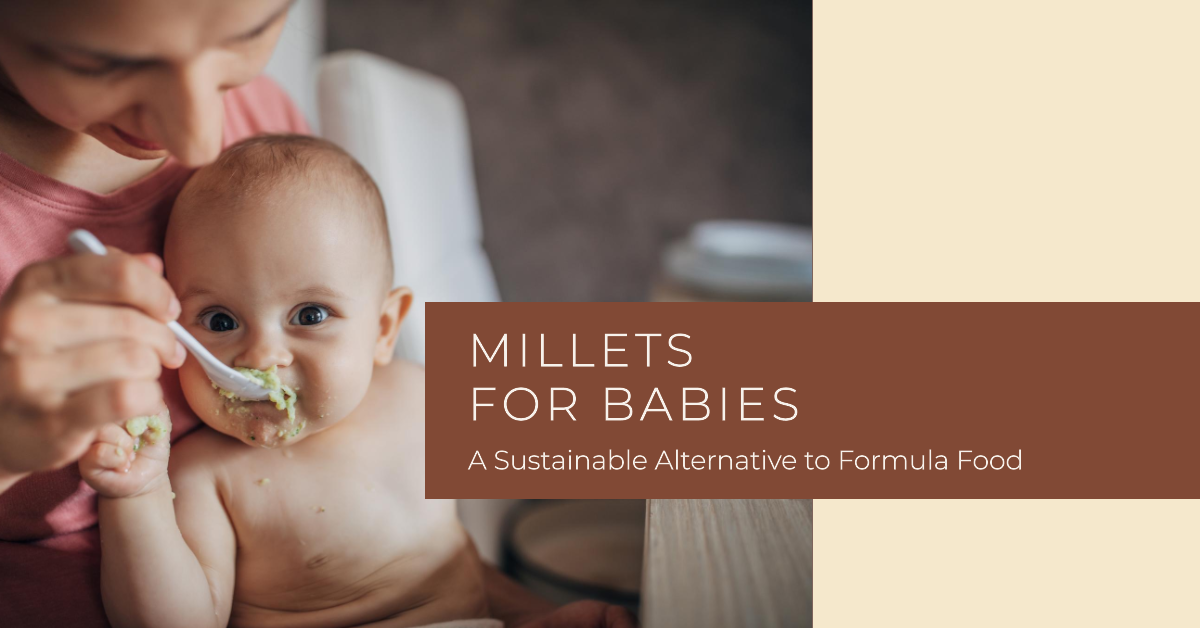Being a conscious parent entails a lot of research and hard work- all to ensure that your bundle of joy receives the best quality of life you can provide them with. While many baby food companies have risen to the top through promises of helping young, modern parents with their goals, it is very few who actually address issues with normative feeding, sustainability of production, and overall maximised health benefit for your child. While formula food has proven drawbacks, millets for babies can be a great alternative as they are allergen-free, easily digestible and customizable as per your baby’s needs.
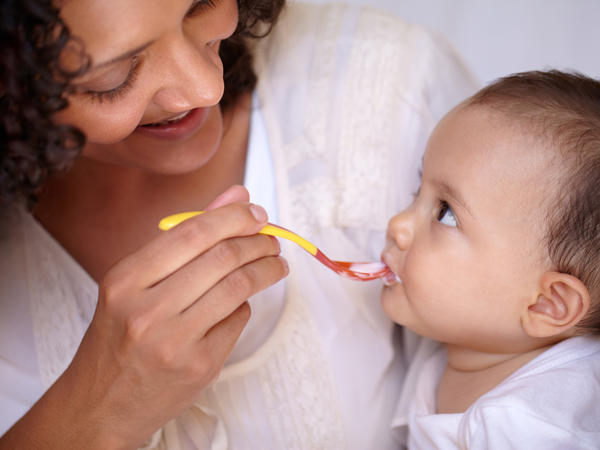
Drawbacks of Infant Formula Food
Although infant formulas are widely sort after as an easy, readily available option- they might be some of the worst nutritional sources for your baby. Besides shedding off expenses that do not serve your baby’s development, you will be enriching your bonding time while preparing for alternatives that suit them better.
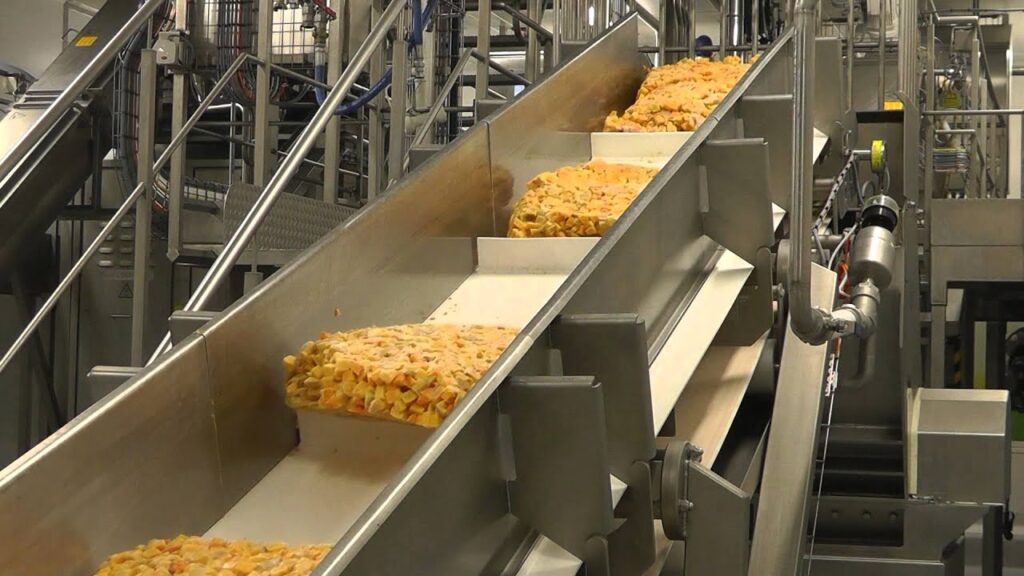
1. Lack of variety: Many manufactured baby foods have a limited range of ingredients which can limit your baby’s exposure to different tastes and textures. Baby foods during the early oral stages are more influential on your child’s taste development. Pickiness does not arise simply out of nowhere, after all.
2. Nutrient deficiencies: Some manufactured baby foods may not have enough of certain nutrients that are essential for the baby’s growth and development. They prioritise shelf life rather than maximum level of nutrients, vitamins, and minerals that can be safely fed to a baby.
3. Added sugar and preservatives: Some baby foods may contain added sugar or preservatives. Whether it is to make the food tastier, or to ensure a longer shelf life, these ingredients can be detrimental to a baby’s health.
4. Cost: Manufactured baby foods can be expensive which ends up becoming a challenge for families on a tight budget. They are not a sustainable source of essential nutrients for your baby, nor are they sustainable for your wallet.
5. Risk of contamination: Factory baby food always carry contamination risk, especially if it is not stored properly or is past its expiration date. One should view any shelf product with suspicion because your child is sensitive, and even the smallest manufacturing issues can affect them.
Are Millets for Babies Good Alternative to Formula Food?
With all the drawbacks of manufactured baby food in mind, we must acknowledge that home cooked food is the best way forward. After all, there can’t be compromises when it comes to your baby’s diet. Let’s take a cue from the recent declaration of 2023 as the International Year of Millets, shall we?
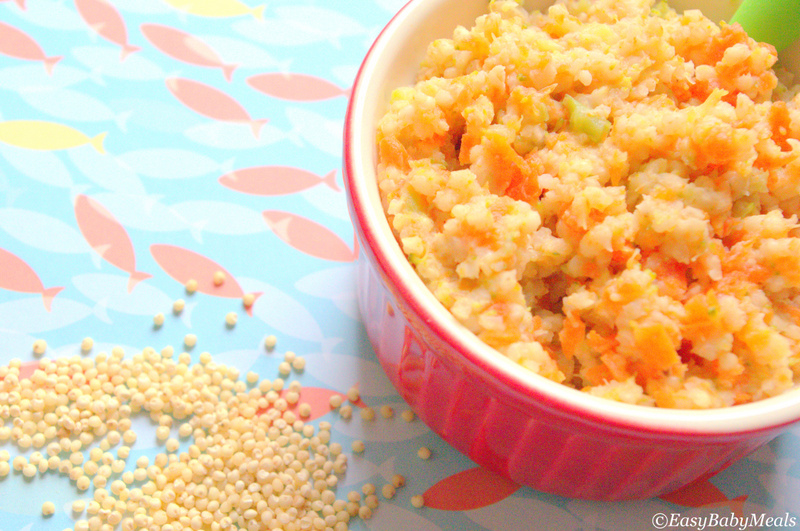
Millets can be a good alternative to manufactured baby food as they are a whole food that is rich in essential nutrients as well as fibre, protein, and vitamins. Millets, unlike some baby foods that are infamous to create gastrointestinal issues, are easy to digest and might suit baby’s diet. You can cook, mash or blend millets with fruits and vegetables to make it more palatable for the baby. Homemade millet baby food can be made easily with minimal ingredients and can be tailored to the baby’s taste preferences and nutritional needs without being stuck on the same level of nutrition provided by one single branded jar of baby food through various developing stages of your baby. Furthermore, dishes prepared with millets are allergen-free as millets are naturally gluten-free and would not bring up any allergic reactions that can be life-threatening for your kid.
Another benefit of millets that might interest you as a concerned, doting parent is its ability to help your baby gain some weight. In cases of underweight babies, the incorporation of millets in a calorie-dense diet can help plump up your child and keep them healthy. Moreover, millets are a good food option for babies who may be overweight or are at a risk of becoming overweight as this grain group is low in fat and calories.
When can I introduce Millets into my Baby’s Diet?
It is a global practice that babies are exclusively breastfed for the first six months of life. Millets can be included in a baby’s diet as a complementary food after the age of six months, where solid foods can be introduced while continuing to breastfeed until 12 months of age.
When introducing millets to a baby’s diet, it’s important to start with a small amount and gradually increase the quantity over time. This can help the baby adjust to the new food and reduce the risk of any digestive issues that their sensitive bodies are prone to.
Which is the best millet for babies?
It’s also important to choose the right type of millet for the baby’s age and developmental stage. Some of the most common millets used for baby food are Finger millet (ragi) and pearl millet (bajra) . You can introduce Finger millet as early as six months of age, and pearl millet around eight to nine months of age due to its nutrient density.
As with any new food, it’s best to consult with a paediatrician before introducing millets to a baby’s diet, especially if the baby has any food allergies or digestive issues. The paediatrician can provide guidance on the appropriate timing and amount of millet that can be introduced to the baby’s diet based on their individual needs and the developmental stage that your baby is in.
Organic Indian Brands that use Millets for Babies Food
With the advent of conscious brands bringing much needed changes in the Indian market that is married to unsustainability, there are various organic Indian baby food brands that will nourish your child with the help of sustainable ingredients such as millets. If you are a working parent who simply cannot spend too much time on preparing dishes for your child, the following conscious brands with their wide range can be a safe alternative.
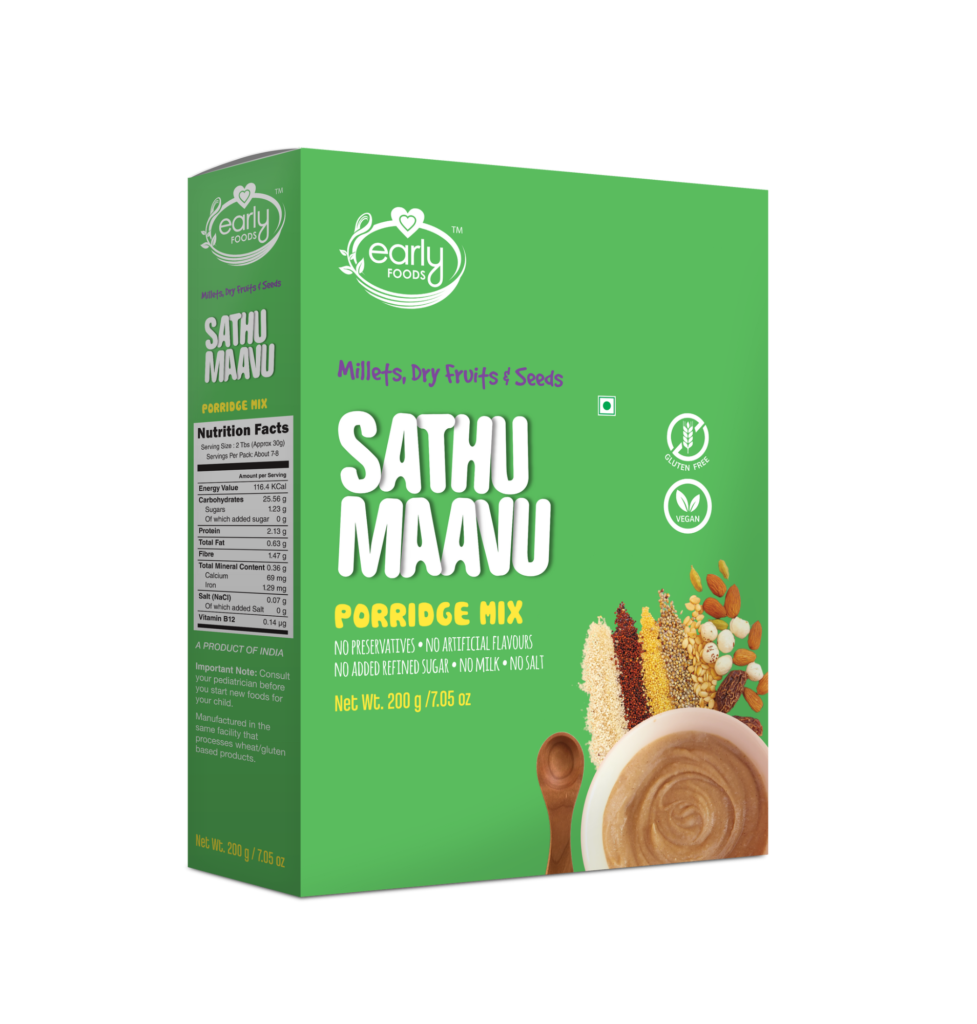
Early Foods
Early Foods provides your child with a large range of organic and preservative-free food that range from millet-based porridges to tiny snacks for your baby. Their main mission is to provide baby food products made from locally sourced ingredients to ensure the highest quality and safety, allowing you to rest easy.
My Little Moppet
Founded by a paediatrician who is also a mother of two, My Little Moppet has products that are free of additives and artificial flavours. Some of their most popular products include Little Millet Khichdi Mix, Foxtail Millet Porridge Mix, and Ragi Banana Powder. These products are easily digestible while also providing essential nutrients like protein, fiber, and vitamins for growing children.
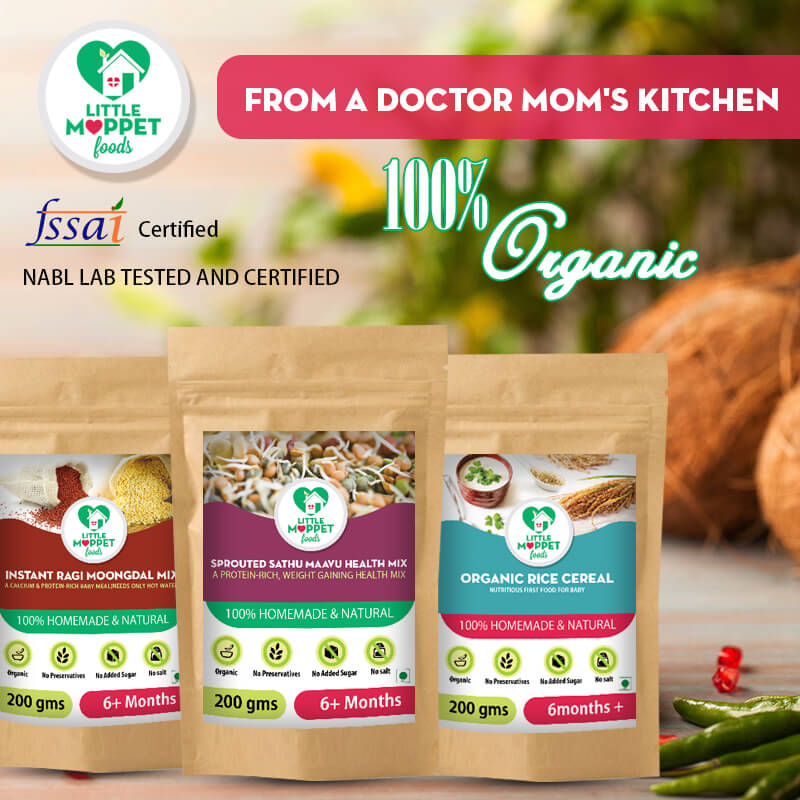
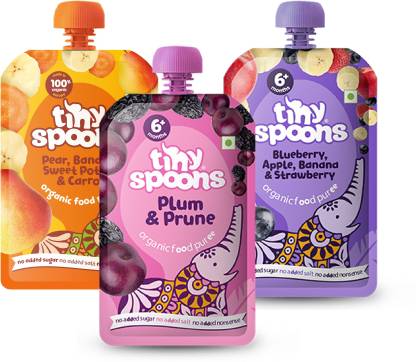
Tiny Spoons
From cereal mixes to porridge mixes, Tiny Spoons is dedicated to educating parents about healthy food recipes and nutritional information as the brand is founded by two mothers, for parents. Their popular mixes include Ragi Banana Porridge Mix, Foxtail Millet Porridge Mix, and Multi-Grain Porridge Mix.
Slurrp Farm
Slurrp Farm is a committed brand to offering the health benefits of Indian cuisine ingredients such as ragi, jowl, and bajra. With the millets taking care of all of the nutrient requirements that your baby can receive, their lack of preservatives and artificial colouring takes the brand’s motto to provide the healthiest food options a step further.
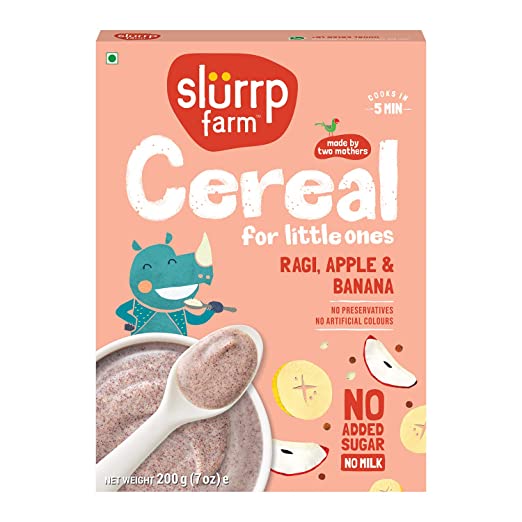
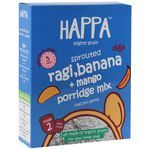
Happa Foods
Providing organic, wholesome, and allergen-free infant food options is the main focus of the Indian company Happa Foods. They provide a variety of items, like millet porridge and millet-based snacks, that feature millets as a primary ingredient. Preservatives, added sugar, and artificial flavours are not present in their products, which are created to meet the nutritional requirements and palate preferences of infants and toddlers.
Key Takeaways
Manufactured baby foods have drawbacks, including limited variety, nutrient deficiencies, added sugar and preservatives. Home-cooked food is the best way to go, and millets are a great alternative to manufactured baby food. Millets are a whole food rich in essential nutrients, fiber, protein, and vitamins–all of which are necessary for a healthy infant. There are many organic Indian baby food brands such as My Little Moppet, Slurrp Farm, Tiny Spoons, and more that use millets to put forth a healthy dish for your baby to consume safely by.

